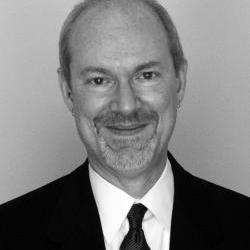The splendid and imaginative fourth season of ChamberFest Cleveland continued on Saturday night with an intriguing look at the inter-relationships among European folk and classical music and American jazz and blues. Mixon Hall at the Cleveland Institute of Music was an ideal venue, with its steeply raked seating and gorgeous view of the garden just outside the rear of the stage platform.
Maurice Ravel’s acquaintance with George Gershwin is well-documented, and the influence of one composer on the other was a natural exploration for this concert. Violinist Jinjoo Cho and pianist Roman Rabinovich opened with Ravel’s Sonata for Violin and Piano in G major in a sometimes sleek, sometimes ferocious performance. The sonata began delicately, growing in drama as the two musicians traded thematic material, with jazz inflections in the piano supporting a soaring violin melody. Throughout the three movements, the two musicians played as equal partners in a duo, with neither subservient to the other. The third movement “perpetual motion” in the violin was punctuated with sharp, chordal interjections in the piano.
Composer and double bass virtuoso Edgar Meyer wrote his short one-movement Amalgamations for solo bass to highlight multiple musical styles, from soft simultaneous glissandi, folk music figurations, avant garde classical techniques and even a hint of bluegrass. Bassist Nathan Farrington had mastered the multiple styles and techniques with aplomb, making Amalgamations into a unified character piece, no small achievement given the multiplicity of short sections. A penultimate Allegro suddenly stops, and we had one last haunting “sighing” single note descending glissando. Farrington gave what might have been musical mush a convincing performance.
American jazz clarinetist Benny Goodman (who also had a notable classical music pedigree) was responsible for several notable works from the first half of the 20th century, including Aaron Copland’s Clarinet Concerto and Béla Bartók’s Contrasts for violin, clarinet and piano. Yehonatan Berick, violin, Franklin Cohen, clarinet, and Roman Rabinovich, piano, gave a distinguished performance of Contrasts, with jaunty dotted rhythms in the first movement, dominated by the clarinet, a second movement marked by a slow, mysterious duet between violin and clarinet with ominous low piano trills, and brilliant folk-dance-inspired third movement. Benny Goodman’s jazz background seemed to be an influence in the writing, with its jazz-inflected phrases, carried well by Cohen. Berick was especially impressive in the violin cadenza.
Contrasts was immediately preceded by a movement from the inveterate folksong collector Béla Bartók’s Mikrokosmos for solo piano. Roman Rabinovich chose no. 151, the fourth of the six “Dances in Bulgarian Rhythm” that close the set. He gave it a fiery performance, percussive, jazzy, highlighting the polytonality of Bartók’s arrangement.
After the interval the focus was more directly on jazz, opening with Dave Brubeck’s famous Blue Rondo à la Turk, featuring clarinetist Cohen, bassist Farrington, pianist Rabinovich and Cleveland jazz legend Howie Smith in the alto sax part created by Paul Desmond. Brubeck borrowed Bartók’s mixed 9/8 meter (1-2, 1-2, 1-2, 1-2-3), interspersed with swinging 4/4 improvisation sections. It was impressive in its accuracy, but except for Smith, the performance had a bit of conservatory crossover earnestness. There was no such reservation about Farrington and Smith’s performance of Thelonious Monk’s 1944 standard Round Midnight which followed. It was smooth and relaxed, a real treat.
George Gershwin composed his An American in Paris in a two-piano draft, co-opting willing pianist friends into playing it with him during the compositional process. Husband and wife pianists Anna Polansky and Orion Weiss performed the original two-piano version here, and it was a revelation, a very different piece. The orchestration smoothes out the edges; it has a more “popular” sound. The piano version is sharper, with greater rhythmic clarity, almost Stravinskian. It proved a showpiece for these two talented pianists, although Weiss occasionally was too dominant, with the result being that the pianos were out of balance. But overall it was like meeting an old friend in a sparkling new outfit.
The concert closed with a new work, American composer Dana Wilson’s A Thousand Whirling Dreams for clarinet, violin, piano and percussion. A version of the piece was first composed in 2014; it was later reconfigured to include percussion, at the request of ChamberFest Cleveland co-director Franklin Cohen, for performance by himself, his violinist daughter Diana Cohen (also a co-director of the festival), his percussionist son, Alexander Cohen, and the tireless pianist Roman Rabinovich. This was the new version’s US premiere. The work is in three brief, inter-connected, but contrasting, movements – fast, slow, fast – each with jazz inflections. It was a good summary of the concert’s themes, and the Cohens and Rabinovich gave an impressive, and presumably definitive, performance. However, in this concert's context, the work suffered by comparison with other masterworks on the program, especially Bartók’s Contrasts, with its very similar instrumentation. It deserves further performances not at the end of an already long program.


